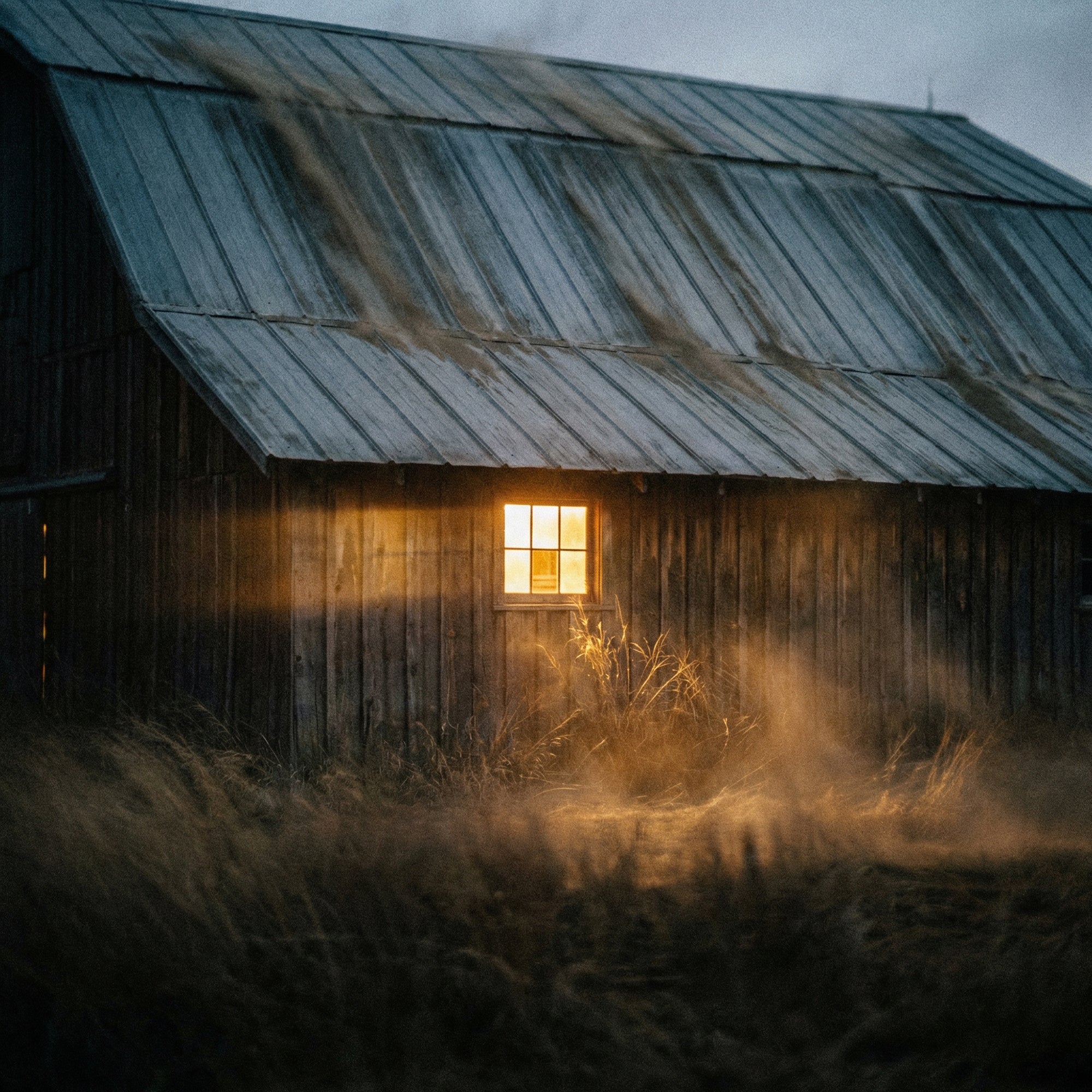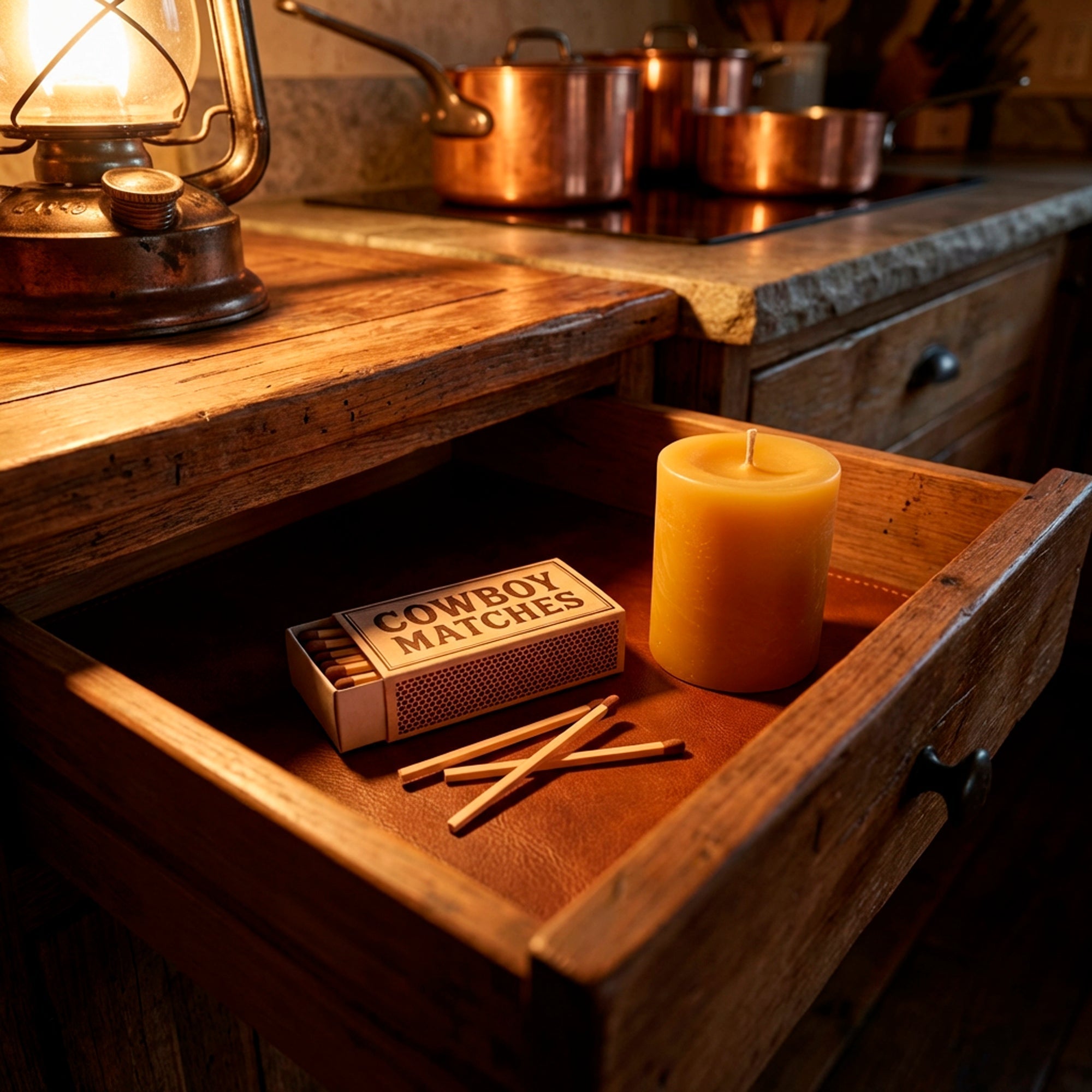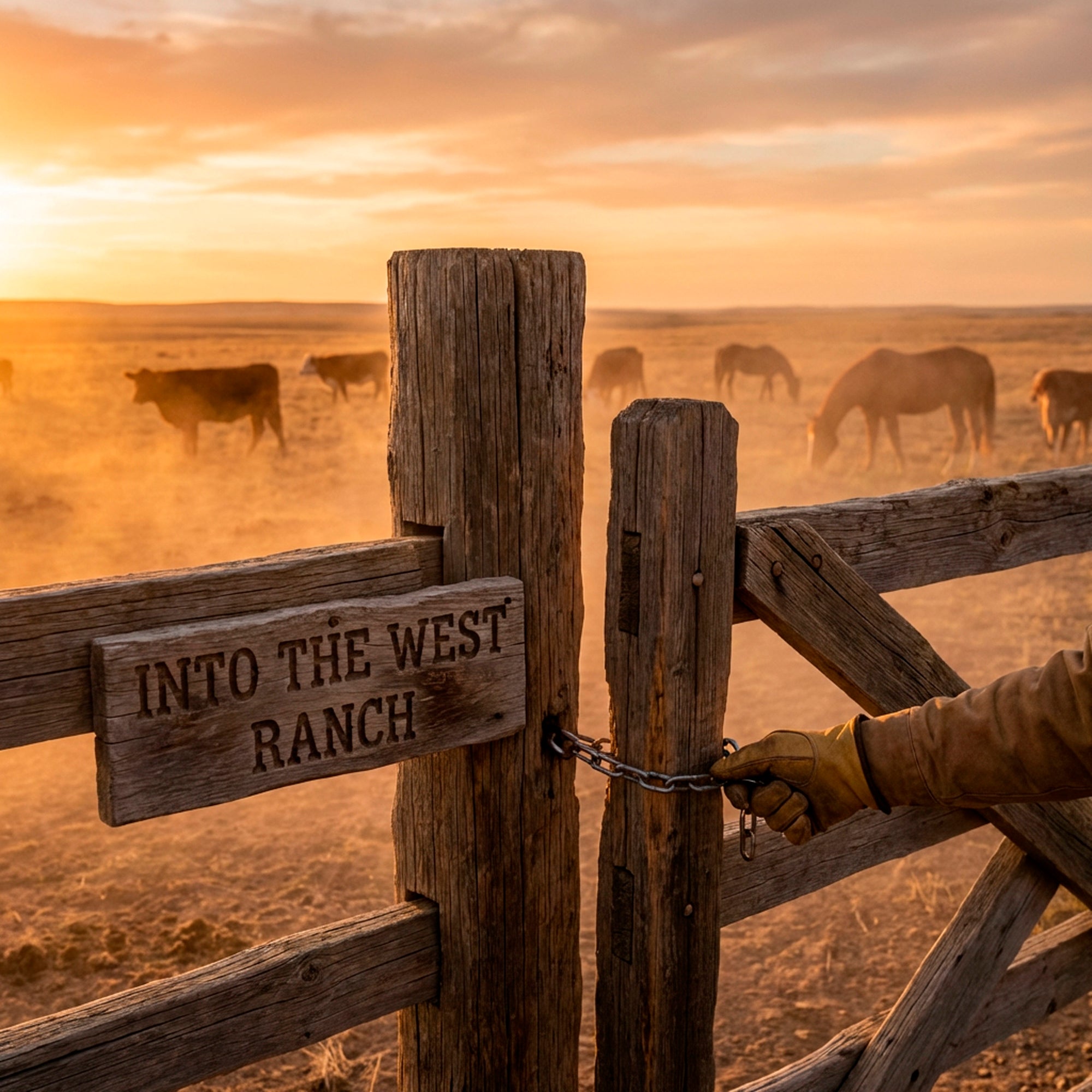A meditation on twilight, rest, and the rituals that prepare both land and spirit for another day.
When the West Slows
There is a hush that falls across the land when twilight comes. The day has spoken its piece — in the sounds of hoofbeats, the clang of tools, the hum of labor — and now it grows quiet. Shadows stretch long, the air cools, and the West exhales.
For as long as ranches have stood, evenings have been more than the closing of a day. They are the pause that makes the rest possible — a sacred slowness that restores, gathers, and holds memory.
This Soulful Sunday, we turn to the evenings of the West. The rituals, sounds, and simple graces that transform twilight into something timeless.
The Heritage of Evening Rituals
Long before the hum of modern lightbulbs, Western evenings moved by fire and moon. Families gathered in kitchens as lamps were lit, or circled outside around small fires as the last work of the day was done.
Cowboys on the trail ended long rides with the soft glow of mesquite fires, their boots stretched toward warmth, their voices carried by song and story. Children at ranch houses knew the pattern well: evening chores, a final check on animals, then the comfort of a table or a porch where laughter replaced labor.
Evening was not merely the absence of daylight. It was the time when heritage was passed down — recipes shared, tales told, prayers whispered. A rhythm that has shaped ranch life for generations.
The Sounds of Twilight
Close your eyes at sundown in the West and you’ll hear a symphony written not by hands but by land. Cicadas rise in chorus, owls call to one another across the pasture, wind threads through mesquite and cottonwood.
The clang of tools softens, replaced by the closing of barn doors and the last shuffle of boots across gravel. Dogs settle by the porch, their ears tuned to the small noises of night. Somewhere distant, a coyote’s call breaks the stillness — a reminder that the land belongs first to itself.
These sounds weave the fabric of Western twilight. To live out here is to know that silence is never empty. It is filled with the life of the land itself.
The Light That Lingers
If morning belongs to the sun, evening belongs to the light that lingers after it. Golden hour fades into deep blues, each moment stretching the colors of the sky into something worth remembering.
Inside ranch houses, lanterns glow. Once oil, now often electric, their light is still soft and steady, casting long shadows across wooden floors. Outside, fire pits spark to life, their flicker dancing across faces drawn close.
This is light not meant for work but for rest. It does not demand; it invites. It gathers people near, wraps them in warmth, and offers a reminder that endings can be gentle.
Evenings as Storykeepers
Perhaps the greatest work of Western evenings is the way they keep stories alive. Gathered on porches, around tables, or by firelight, families have always shared the tales that anchor identity.
Some are legends — of wild horses, long rides, or hard winters survived. Others are ordinary — the mischief of a family dog, the small victories of the day. Yet in their telling, all stories become heirloom.
Evenings bind generations not by structure, but by voice. A child’s words matter as much as a grandfather’s. Laughter echoes alongside wisdom. The fire crackles, the night deepens, and the West continues its oldest tradition: storytelling.
Rest as Ritual
On a ranch, even rest has its rhythm. Evening chores are part of it — feeding animals, securing gates, checking water. Each act, though small, prepares both land and spirit for peace.
When the work is done, reflection begins. Some say prayers, others sit in silence, still others gather instruments and let music carry them toward sleep. The point is not the form but the presence — the act of pausing, of making room for gratitude.
Rest in the West is never idle. It is ritual, as sacred as any task of the day.
The Modern Western Evening
Life moves faster now. Screens glow where once lanterns did, and schedules often stretch into hours that once belonged to silence. And yet, the hunger for slow evenings remains.
Across the West, families are reclaiming the rituals that make twilight meaningful. Phones are set aside for the length of a fire. Tables are set with care. Evenings become intentional once more — not merely the time between work and sleep, but the space where life deepens.
Modern Western homes blend old and new: stone hearths paired with sleek design, cast iron next to stainless steel. But the essence is unchanged. When twilight falls, the West slows.
The Gift of Slow Evenings
The slow evenings of the West are not just about the setting of the sun. They are about the rising of memory, the presence of heritage, and the grace of rest.
To live them is to know that time is not something to conquer, but something to cherish. That silence can be rich, that light can be soft, that gathering can be simple and profound.
This Soulful Sunday, may you find your own slow evening. May the West remind you that endings, too, can be beginnings.







Share:
Sundown Fires and Story Circles
The Sound of Boots on Wooden Floors